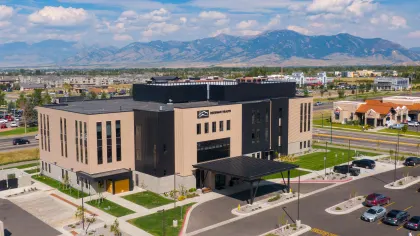Lifestyle medicine at Bozeman Deaconess is designed to address the root causes of chronic illnesses through sustainable lifestyle changes. By focusing on prevention and disease reversal, the program integrates evidence-based strategies such as nutrition, exercise, and stress management to improve patient outcomes. Given that chronic diseases contribute to the majority of global deaths, Bozeman Deaconess offers a comprehensive solution that blends traditional medical care with personalized lifestyle coaching. This article will delve into how Bozeman Deaconess implements lifestyle medicine, supported by data and statistics, to promote long-term health improvements.
Key Takeaways:
- Lifestyle medicine focuses on preventing and treating chronic diseases through evidence-based lifestyle interventions like diet, exercise, and stress management.
- Bozeman Deaconess offers comprehensive lifestyle medicine programs, combining medical care with coaching for sustainable health improvements.
- Statistics show that 60% of all global deaths are attributed to chronic diseases, making lifestyle interventions increasingly vital.
- Bozeman Deaconess provides personalized treatment plans aimed at reversing chronic conditions such as Type 2 diabetes, hypertension, and heart disease.
- National studies indicate that lifestyle medicine can reduce healthcare costs by up to 80% by preventing hospital admissions.
What Is Lifestyle Medicine?

Lifestyle medicine is a branch of medicine that uses lifestyle interventions to prevent, treat, and even reverse chronic diseases. According to the American College of Lifestyle Medicine, the six core pillars of lifestyle medicine include:
- A Whole-Food, Plant-Based Diet: Eating nutrient-rich foods that reduce inflammation and improve overall health.
- Physical Activity: Engaging in regular exercise to improve cardiovascular health and manage weight.
- Stress Management: Techniques such as mindfulness and meditation help lower stress levels and improve mental well-being.
- Adequate Sleep: Quality sleep is essential for physical and mental recovery.
- Social Connections: Strong relationships and social support can have a profound effect on mental and emotional health.
- Avoidance of Risky Substances: Steering clear of tobacco, excessive alcohol, and other harmful substances.
Bozeman Deaconess has adopted this holistic approach to healthcare, offering a range of services that address these six pillars.
Lifestyle Medicine at Bozeman Deaconess
Bozeman Deaconess Hospital provides patients with an integrated lifestyle medicine program aimed at addressing chronic health conditions. This program is designed to reduce reliance on medications and improve quality of life through targeted lifestyle changes. The following sections explore the key components of the lifestyle medicine offerings at Bozeman Deaconess.
1. Nutrition and Dietary Interventions
A whole-food, plant-based diet is a cornerstone of lifestyle medicine. Research published in The Lancet highlights that poor diet is responsible for over 11 million deaths globally each year. At Bozeman Deaconess, nutritionists work closely with patients to develop tailored meal plans that promote cardiovascular health, improve digestion, and lower blood sugar levels in diabetic patients.
Chronic Diseases Impacted by Dietary Interventions
| Condition | Percentage Improvement with Plant-Based Diet |
|---|---|
| Type 2 Diabetes | 40% reduction in blood sugar levels |
| Heart Disease | 20% lower risk of heart-related deaths |
| Obesity | 30% increase in weight loss success |
2. Exercise Programs
Regular physical activity is crucial for maintaining health and reversing the effects of sedentary lifestyles. The Centers for Disease Control and Prevention (CDC) recommends 150 minutes of moderate-intensity aerobic activity each week. Bozeman Deaconess offers personalized exercise programs, including supervised fitness classes and physical therapy, to help patients reach these goals.
Studies have shown that physical activity reduces the risk of chronic diseases like hypertension by 19% and heart disease by 25%, which is why exercise forms a core part of the Bozeman Deaconess lifestyle medicine program.
3. Stress Management and Mental Health
Chronic stress is linked to numerous health problems, including anxiety, depression, and high blood pressure. The American Journal of Psychiatry reports that mindfulness-based stress reduction (MBSR) can reduce stress-related disorders by up to 58%. Bozeman Deaconess incorporates mindfulness programs, yoga, and meditation techniques into its lifestyle medicine offerings, allowing patients to manage stress effectively.
4. Sleep Improvement
Sleep is another critical element of lifestyle medicine. Inadequate sleep is associated with a higher risk of obesity, diabetes, and cardiovascular disease. Bozeman Deaconess has a sleep clinic where patients can receive sleep assessments, and individualized treatment plans are crafted to address sleep disorders.
5. Social Support Systems
Social connections play a significant role in long-term health. Bozeman Deaconess emphasizes the importance of community support by offering group programs where patients can share experiences, build relationships, and maintain accountability in their lifestyle changes. A study from Harvard Medical School shows that people with strong social ties have a 50% increased likelihood of longevity compared to those without such connections.
6. Risky Substance Avoidance
Bozeman Deaconess also provides smoking cessation programs and alcohol counseling, which are crucial to a lifestyle medicine approach. By avoiding risky substances, patients can significantly reduce the risk of developing chronic diseases.
The Role of Lifestyle Medicine in Chronic Disease Prevention
The impact of chronic diseases such as heart disease, diabetes, and obesity continues to rise globally. According to the World Health Organization (WHO), 60% of all deaths worldwide are due to chronic diseases. Lifestyle medicine aims to reduce these alarming statistics by focusing on the underlying causes.
Global Burden of Chronic Diseases
| Disease | Percentage of Global Deaths (WHO) |
|---|---|
| Cardiovascular Disease | 31% |
| Diabetes | 5% |
| Respiratory Disease | 8% |
| Cancer | 16% |
Bozeman Deaconess’ lifestyle medicine approach targets these conditions by promoting behaviors that prevent disease progression. For example, studies indicate that adhering to lifestyle medicine principles can reduce the incidence of Type 2 diabetes by 80% and lower the risk of stroke by up to 25%.
Benefits of Adopting a Lifestyle Medicine Approach
1. Improved Health Outcomes
Patients who engage in lifestyle medicine programs typically see significant health improvements, including reduced blood pressure, lower cholesterol levels, and better-controlled blood sugar levels. For example, a randomized controlled trial published in the Journal of Nutrition found that patients on a plant-based diet saw an average 40% reduction in cholesterol levels within six weeks.
2. Cost Savings
Lifestyle medicine not only improves patient health but also reduces healthcare costs. A report from the American Journal of Lifestyle Medicine indicates that 70% of the total healthcare costs in the U.S. are related to chronic diseases, most of which could be prevented through lifestyle interventions. By focusing on prevention, Bozeman Deaconess helps patients avoid costly surgeries, medications, and hospital stays.
3. Reduced Medication Dependency
Through lifestyle changes, patients can often reduce their reliance on medications. For instance, a study published in Diabetes Care revealed that 70% of participants with Type 2 diabetes who adopted lifestyle interventions were able to reduce or discontinue their diabetes medications.
The Future of Lifestyle Medicine at Bozeman Deaconess
Bozeman Deaconess plans to expand its lifestyle medicine offerings, with new programs aimed at reaching more patients and making care more accessible. The hospital is investing in telemedicine services to provide remote lifestyle coaching and education. This expansion aligns with the increasing global demand for preventive care and chronic disease management. Furthermore, the hospital plans to integrate more digital health tools, such as wearable devices and mobile apps, to help patients monitor their progress and maintain accountability.
Conclusion
Lifestyle medicine at Bozeman Deaconess offers an innovative approach to treating and preventing chronic diseases by addressing the root causes through evidence-based lifestyle changes. By focusing on key areas such as nutrition, exercise, and stress management, the program improves patient outcomes, reduces healthcare costs, and enhances overall quality of life. With a growing demand for preventive care, Bozeman Deaconess is at the forefront of the movement toward sustainable, patient-centered healthcare.
FAQs About Lifestyle Medicine at Bozeman Deaconess
What is Lifestyle Medicine?
Lifestyle medicine is a medical specialty that uses lifestyle interventions, such as diet and exercise, to prevent and treat chronic diseases.
What are the key pillars of lifestyle medicine?
The six key pillars include nutrition, physical activity, stress management, sleep, social connections, and avoidance of risky substances.
How does Bozeman Deaconess implement lifestyle medicine?
Bozeman Deaconess offers personalized programs that focus on dietary interventions, exercise, stress management, and social support to prevent and treat chronic diseases.
What conditions can be treated with lifestyle medicine?
Lifestyle medicine is particularly effective for chronic diseases such as Type 2 diabetes, heart disease, obesity, hypertension, and some mental health conditions.
Can lifestyle medicine replace medications?
In many cases, patients can reduce or eliminate the need for medications through lifestyle interventions, though it is done under medical supervision.
How effective is lifestyle medicine in reducing healthcare costs?
According to a study published in The Permanente Journal, lifestyle medicine can reduce healthcare costs by up to 80% by preventing costly hospital admissions and medication use.


